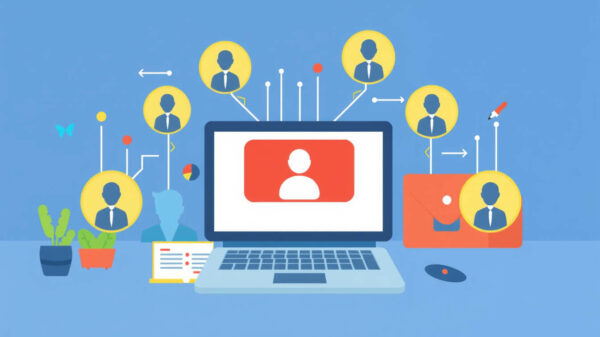Introduction
Definition of Imposter Syndrome
Imposter syndrome, also known as the imposter phenomenon, is a psychological experience characterized by persistent self-doubt regarding one’s abilities, skills, or accomplishments. Individuals experiencing this phenomenon often feel like frauds, attributing their successes to external factors such as luck rather than their own competence. Despite evidence of their achievements, they struggle to internalize their success and live in fear of being exposed as imposters.
Research indicates that this phenomenon is prevalent among high-achieving individuals, including teens entering the workforce for the first time.Imposter syndrome manifests in various ways, including perfectionism, fear of failure (atychiphobia), and denial of competence. Teens may find themselves over-preparing for tasks or procrastinating due to anxiety about their performance. This cycle can lead to heightened stress levels and a diminished sense of self-worth, particularly in competitive environments like the workplace.
Importance of Addressing Imposter Syndrome
Addressing imposter syndrome is crucial for mental health and career development, especially among teens who are navigating the complexities of early employment. The impact of imposter syndrome can be profound; it often leads to increased anxiety, depression, and burnout. Teens grappling with these feelings may hesitate to pursue opportunities or take risks that could benefit their careers due to a fear of inadequacy.
Furthermore, the necessity for developing confidence and self-belief in a competitive work environment cannot be overstated. As young employees face challenges and expectations in their roles, fostering a strong sense of self-worth is essential for their professional growth and overall well-being. Teens who learn to combat imposter syndrome are more likely to embrace new opportunities, advocate for themselves, and contribute positively to their workplaces. By cultivating confidence and resilience, they can break free from the constraints of self-doubt and realize their full potential as capable employees.

Image from Forage
Understanding Imposter Syndrome
Causes and Triggers
Imposter syndrome is influenced by a variety of factors that can contribute to feelings of inadequacy and self-doubt, particularly among teens in the workplace. Understanding these causes and triggers is essential for addressing the phenomenon effectively.
Common Causes:
- Personality Traits:
- Perfectionism: Individuals who set excessively high standards for themselves often feel that anything less than perfect is a failure. This trait is strongly linked to imposter syndrome, as perfectionists may downplay their achievements and feel inadequate if they do not meet their own expectations.
- Neuroticism: Those who exhibit high levels of anxiety, stress, and emotional instability are more prone to experiencing imposter feelings. This personality trait can amplify self-doubt and fear of failure.
- Low Self-Efficacy: Teens with low self-efficacy may doubt their abilities to succeed in specific situations, leading them to attribute success to external factors rather than their skills.
- Childhood Environment:
- Academic Pressure: Growing up in an environment that emphasizes high achievement can instill a sense of conditional self-worth based on performance. Teens raised in such settings may internalize the belief that their value is tied solely to their accomplishments.
- Family Dynamics: Families that oscillate between praise and criticism can create confusion regarding self-worth. For instance, having high-achieving siblings or parents who set unattainable expectations can exacerbate feelings of inadequacy.
- Social Pressures:
- Societal expectations to succeed can be overwhelming, especially for teens entering new roles or environments. The pressure to perform well while feeling inexperienced can trigger imposter feelings, particularly in competitive workplaces.
- Existing Mental Health Conditions:
- There is a notable relationship between imposter syndrome and mental health issues such as anxiety disorders and depression. Teens with these conditions may be more susceptible to feelings of fraudulence.
Specific Triggers:
- New Responsibilities: Starting a new job or taking on unfamiliar tasks can heighten feelings of inadequacy.
- Comparisons to Peers: Social media amplifies the tendency to compare oneself unfavorably to others, leading to increased self-doubt.
- Feedback and Criticism: Receiving critical feedback or working in a highly competitive environment can trigger imposter feelings, making teens question their abilities.
Signs and Symptoms
Recognizing the signs and symptoms of imposter syndrome is crucial for identifying when teens may need support in overcoming these challenges.
Typical Signs:
- Self-Doubt: Persistent feelings of uncertainty regarding one’s abilities or qualifications.
- Fear of Failure: A debilitating fear that any failure will expose them as a fraud, leading to avoidance of new challenges.
- Downplaying Achievements: Attributing successes to luck or external factors rather than personal effort or skill.
- Discomfort with Praise: Feeling uncomfortable or dismissive when receiving compliments or recognition for achievements.
Impact on Performance and Job Satisfaction:
- Teens experiencing imposter syndrome may struggle with performance due to anxiety and self-doubt. This can lead to:
- Reduced Risk-Taking: A reluctance to take on new responsibilities or pursue opportunities for growth due to fear of failure.
- Burnout: Overworking in an attempt to prove oneself can lead to exhaustion and decreased job satisfaction.
- Decreased Confidence: Continuous feelings of inadequacy can erode self-esteem, making it difficult for teens to assert themselves in workplace settings.
Understanding these causes, triggers, signs, and symptoms provides a foundation for developing effective strategies to help teens overcome imposter syndrome and build confidence in their abilities as young employees.

Image From mindful.org
Strategies for Overcoming Imposter Syndrome
Developing Self-Awareness
Encouraging Recognition of Feelings
- Teens should be encouraged to recognize and acknowledge their feelings of self-doubt and inadequacy. Understanding that these feelings are common and often linked to imposter syndrome can help normalize their experiences.
- Journaling can be an effective tool for self-reflection. Teens can write about their feelings, identifying specific moments when they felt like imposters, which can help them better understand and articulate their emotions.
Identifying Personal Triggers
- Teens can benefit from techniques that help them identify personal triggers that exacerbate feelings of inadequacy. Common triggers may include:
- High-pressure situations: New tasks or responsibilities at work.
- Comparisons with peers: Social media interactions or competitive environments.
- Negative feedback: Criticism from supervisors or coworkers.
- Encouraging teens to keep a log of these triggers can provide insight into patterns of negative self-talk and help them prepare strategies to cope with these situations.
Building Confidence through Accomplishments
Keeping a Record of Achievements
- One effective strategy for building confidence is for teens to maintain a record of their achievements. This could include:
- A success journal: A dedicated notebook where they list accomplishments, positive feedback, and compliments received.
- Visual reminders: Creating a vision board or a digital file that showcases their successes, such as certificates, awards, or positive emails from supervisors.
- Regularly reviewing this record can reinforce their sense of competence and remind them of their capabilities.
Celebrating Small Wins
- Emphasizing the importance of celebrating small victories can significantly enhance self-worth. Strategies include:
- Rewarding oneself: After completing a task or achieving a goal, teens should treat themselves to something enjoyable, whether it’s a favorite snack or a fun outing.
- Acknowledging effort: Encouraging teens to recognize their hard work and dedication, even if the outcome wasn’t perfect. This helps frame challenges as learning opportunities rather than failures.
Practicing Positive Self-Talk
Reframing Negative Thoughts
- Teaching teens techniques for reframing negative thoughts into positive affirmations can combat imposter syndrome. For example:
- Instead of thinking, “I’m not qualified for this job,” they could reframe it as, “I have valuable skills to contribute, and I am learning every day.”
- Encouraging them to create a list of positive affirmations they can repeat daily can help reinforce this mindset.
Challenging Distorted Beliefs
- Exercises that challenge distorted beliefs about competence and success are essential. Some techniques include:
- Cognitive restructuring: Identifying negative thoughts and systematically questioning their validity. For instance, if a teen thinks, “I only succeeded because I got lucky,” they should explore evidence that contradicts this belief.
- Visualization techniques: Encouraging teens to visualize themselves succeeding in various scenarios can help build confidence and reduce anxiety about performance.
Seeking Support
Discussing Feelings with Trusted Individuals
- It’s important for teens to discuss their feelings of inadequacy with trusted mentors, peers, or counselors. This can provide reassurance and validation while helping them realize they are not alone in their experiences.
- Creating safe spaces for open dialogue about imposter syndrome within educational or workplace settings can foster understanding and support among peers.
Joining Support Groups or Workshops
- Recommendations for joining support groups or workshops focused on building confidence are beneficial. These groups provide:
- Shared experiences: Hearing others’ stories can normalize feelings of self-doubt and provide practical strategies for overcoming them.
- Skill-building opportunities: Workshops often offer tools and exercises specifically designed to enhance self-esteem and resilience.
By implementing these strategies, teens can develop the self-awareness and confidence necessary to overcome imposter syndrome. These approaches not only empower them in the workplace but also contribute positively to their overall mental health and personal development.

Image from recovery.com
Engaging in Mindfulness Practices
Mindfulness Techniques
Introduction to Mindfulness Practices
Mindfulness practices are effective tools for reducing anxiety and promoting self-awareness, particularly for those experiencing imposter syndrome. By fostering a present-focused mindset, mindfulness can help teens manage their self-doubt and cultivate a sense of calm in challenging situations. Research has shown that mindfulness can lead to improved emotional regulation, reduced stress, and enhanced overall well-being.
Simple Exercises for Mindfulness:
- Meditation:
- Guided Meditation: Using apps like Headspace or Calm, teens can engage in guided meditations specifically designed to alleviate anxiety and promote self-acceptance.
- Body Scan Meditation: This practice involves focusing on different parts of the body, promoting relaxation and awareness of physical sensations. Teens can lie down comfortably and mentally scan their bodies from head to toe, noticing areas of tension and consciously relaxing them.
- Deep Breathing:
- 4-7-8 Breathing Technique: Inhale deeply through the nose for 4 seconds, hold the breath for 7 seconds, and exhale slowly through the mouth for 8 seconds. This technique can help reduce anxiety and promote a sense of calm.
- Diaphragmatic Breathing: Encouraging teens to breathe deeply into their diaphragm rather than shallowly into their chest can enhance relaxation. They can place a hand on their belly to feel it rise and fall as they breathe.
- Journaling:
- Gratitude Journaling: Writing down three things they are grateful for each day can help shift focus away from self-doubt and towards positive experiences.
- Reflective Journaling: Teens can write about their feelings related to imposter syndrome, exploring specific instances where they felt inadequate. This practice promotes self-reflection and helps identify patterns in their thoughts.

image from Jostle Blog
Encouraging Resilience
Strategies for Developing Resilience
Building resilience is crucial for teens to navigate setbacks and challenges effectively. Resilience enables individuals to bounce back from difficulties and maintain a positive outlook despite adversity.
- Reframing Setbacks:
- Encourage teens to view setbacks as learning opportunities rather than failures. For instance, if they receive constructive criticism at work, they can frame it as valuable feedback that will help them grow.
- Use language that emphasizes growth, such as “What can I learn from this experience?” instead of focusing solely on the negative aspects.
- Setting Realistic Goals:
- Help teens set achievable goals that are specific, measurable, attainable, relevant, and time-bound (SMART). Breaking larger tasks into smaller steps makes challenges feel more manageable and less overwhelming.
- Celebrate progress along the way to reinforce resilience and motivation.
- Cultivating a Support Network:
- Encourage teens to build a network of supportive peers, mentors, or family members who can provide encouragement during tough times. Engaging with others who understand their experiences can foster resilience.
- Participating in group activities or team projects can also enhance social connections and provide a sense of belonging.
Emphasizing Growth Mindset
- Teach teens about the concept of a growth mindset—the belief that abilities and intelligence can be developed through effort and learning. This mindset fosters resilience by encouraging individuals to embrace challenges and persist in the face of setbacks.
- Encourage them to reflect on past challenges they have overcome, reinforcing the idea that perseverance leads to growth.
By engaging in mindfulness practices and developing resilience strategies, teens can create a supportive framework that empowers them to combat imposter syndrome effectively. These approaches not only enhance their ability to cope with anxiety but also foster a positive outlook towards personal and professional development.
Creating a Supportive Environment
Role of Educators and Employers
Fostering Open Dialogue about Imposter Syndrome
Educators and employers play a critical role in creating an environment where discussions about imposter syndrome are encouraged and normalized. Open dialogue can help destigmatize feelings of inadequacy and promote mental well-being among teens.
- Training and Awareness:
- Schools and workplaces should provide training sessions that educate staff and students about imposter syndrome. This can include workshops, seminars, or informational resources that explain the phenomenon and its effects.
- Encouraging educators and managers to share their own experiences with self-doubt can create a more relatable atmosphere, making it easier for teens to open up about their feelings.
- Creating Safe Spaces:
- Establishing safe spaces within classrooms or workplaces where individuals can express their concerns without fear of judgment is essential. This could be through regular check-ins, anonymous feedback forms, or dedicated discussion groups focused on mental health topics.
- Implementing policies that promote psychological safety can empower teens to voice their struggles and seek support.
Suggestions for Creating Mentorship Programs
Mentorship programs can significantly benefit teens by providing guidance, support, and encouragement in their professional development.
- Pairing Mentors with Mentees:
- Schools and organizations should establish formal mentorship programs that connect teens with experienced professionals or educators who can offer advice and share their own experiences with imposter syndrome.
- Mentors can help mentees set realistic goals, navigate workplace challenges, and build confidence in their abilities.
- Structured Mentorship Activities:
- Organizing regular meetings, workshops, or networking events where mentors and mentees can interact fosters relationship-building and encourages open discussions about challenges faced in the workplace.
- Providing resources such as goal-setting templates or reflection journals can enhance the mentorship experience by encouraging proactive engagement from both parties.
Promoting Team Collaboration
Encouraging Teamwork to Alleviate Isolation
Team collaboration is a powerful strategy for combating feelings of isolation associated with imposter syndrome. Working in teams allows teens to share experiences, learn from one another, and realize they are not alone in their struggles.
- Group Projects:
- Assigning group projects or collaborative tasks in educational settings or workplaces encourages teamwork and fosters a sense of community. This format allows teens to contribute their unique skills while relying on the strengths of their peers.
- Encouraging open communication within teams helps build trust and creates an environment where members feel comfortable sharing their thoughts and feelings.
- Peer Support Networks:
- Establishing peer support networks where teens can discuss their experiences with imposter syndrome provides a platform for shared learning. These networks can facilitate discussions about challenges faced in the workplace while promoting camaraderie among participants.
- Regularly scheduled meetings or informal gatherings can help maintain these connections over time.
Benefits of Sharing Experiences
Sharing experiences within a collaborative setting offers numerous benefits that contribute to personal growth and resilience.
- Normalization of Feelings:
- When teens hear others articulate similar feelings of self-doubt or inadequacy, it normalizes those experiences and reduces the stigma associated with imposter syndrome. This realization can be incredibly validating for individuals struggling with these emotions.
- Learning from Peers:
- Collaborative environments allow teens to learn from each other’s successes and failures. Hearing how peers have navigated similar situations can provide valuable insights and strategies for overcoming challenges.
- Strengthening Relationships:
- Teamwork fosters stronger relationships among peers, creating a supportive network that extends beyond work tasks. These connections can serve as a source of encouragement during difficult times.
By fostering supportive environments through open dialogue, mentorship programs, and team collaboration, educators and employers can play an instrumental role in helping teens overcome imposter syndrome. These initiatives not only enhance individual confidence but also contribute to a culture of understanding and support within educational institutions and workplaces.
Conclusion
Recap of Key Strategies
Throughout this discussion, several effective strategies have been highlighted to help teens overcome imposter syndrome and build confidence in their abilities. These strategies include:
- Developing Self-Awareness:
- Encouraging recognition of feelings associated with imposter syndrome.
- Identifying personal triggers and patterns of negative self-talk.
- Building Confidence through Accomplishments:
- Keeping a record of achievements, positive feedback, and compliments.
- Celebrating small wins to reinforce a sense of self-worth.
- Practicing Positive Self-Talk:
- Reframing negative thoughts into positive affirmations.
- Challenging distorted beliefs about competence and success.
- Engaging in Mindfulness Practices:
- Utilizing mindfulness techniques such as meditation, deep breathing, and journaling to promote self-reflection.
- Developing resilience against setbacks by viewing challenges as opportunities for growth.
- Creating a Supportive Environment:
- Encouraging educators and employers to foster open dialogue about imposter syndrome.
- Promoting mentorship programs that support teens in their professional development.
- Encouraging teamwork to alleviate feelings of isolation.
Call to Action
It is essential for teens to actively engage in practices that build their confidence and self-belief. By implementing the strategies discussed, they can take proactive steps toward overcoming feelings of inadequacy and recognizing their worth as valuable contributors in the workplace.
- Encouragement for Teens:
- Embrace opportunities for growth by participating in new experiences, seeking feedback, and celebrating achievements, no matter how small.
- Practice self-compassion by acknowledging that everyone experiences self-doubt at times, and that it is a normal part of personal development.
- Invitation for Parents, Educators, and Employers:
- Support youth by creating environments where they feel safe discussing their feelings related to imposter syndrome.
- Encourage open conversations about mental health and the importance of self-belief.
- Actively participate in mentorship initiatives or programs that empower teens to recognize their potential and capabilities.
By working together—teens taking initiative and adults providing support—we can create a culture that nurtures confidence, resilience, and a strong sense of self-worth among young individuals entering the workforce.

image from Engagedly
Additional Considerations
Ethical Frameworks for Supporting Teens
Organizations can play a pivotal role in supporting teens facing imposter syndrome by establishing ethical guidelines that prioritize mental health and well-being. These frameworks can help create environments that foster open discussions about self-doubt and promote healthy coping mechanisms.
Establishing Ethical Guidelines:
- Creating Inclusive Policies:
- Develop policies that promote inclusivity and psychological safety, ensuring that all teens feel valued and heard. This includes implementing anti-bullying measures and encouraging respectful communication in educational and workplace settings.
- Training Staff and Mentors:
- Provide training for educators, employers, and mentors on recognizing the signs of imposter syndrome and understanding its impact on youth. This training should include strategies for supporting teens in overcoming self-doubt and fostering resilience.
- Implementing Support Systems:
- Establish formal support systems such as counseling services, peer support groups, and mentorship programs that specifically address imposter syndrome. These resources should be easily accessible to all teens, providing them with safe spaces to discuss their feelings.
- Promoting Transparency:
- Encourage organizations to be transparent about their commitment to addressing mental health issues, including imposter syndrome. This can be achieved through regular communication about available resources, support services, and initiatives aimed at promoting mental well-being.
Engaging Teens in Advocacy
Engaging teens in advocacy efforts can empower them to take an active role in addressing imposter syndrome while aligning these efforts with their values. Internal stakeholders, such as parents and educators, play a crucial role in shaping these supportive advocacy initiatives.
The Role of Internal Stakeholders:
- Encouraging Youth Participation:
- Parents and educators should encourage teens to participate in advocacy groups or initiatives focused on mental health awareness. Involvement in such activities helps teens develop leadership skills while reinforcing their sense of agency.
- Creating Platforms for Expression:
- Establish platforms where teens can share their experiences with imposter syndrome and advocate for change within their schools or workplaces. This could include organizing workshops, discussions, or campaigns that raise awareness about the issue.
- Aligning Advocacy with Values:
- Stakeholders should work collaboratively with teens to ensure that advocacy efforts reflect their values and concerns. This alignment fosters a sense of ownership over the initiatives and encourages authentic engagement from the youth.
- Providing Resources for Advocacy:
- Equip teens with the tools they need to effectively advocate for themselves and their peers. This includes providing access to educational materials about imposter syndrome, mental health resources, and training on effective communication strategies.
By establishing ethical frameworks and engaging teens in advocacy efforts, organizations can create supportive environments that empower young individuals to confront imposter syndrome head-on. These initiatives not only enhance individual resilience but also contribute to a broader culture of understanding and support for mental health challenges faced by youth today.








































